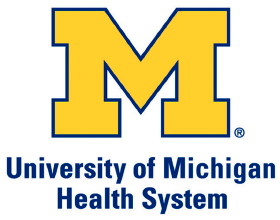1 in 4 Seniors Have Superbugs on Their Hands After a Hospital Stay, New Research Finds
Researcher: Opportunity to educate post-acute care facility patients on hand hygiene, infection control
 One in four seniors is bringing along stowaways from the hospital to their next stop: superbugs on their hands.
One in four seniors is bringing along stowaways from the hospital to their next stop: superbugs on their hands.
Moreover, seniors who go to a nursing home or other post-acute care facility will continue to acquire new superbugs during their stay, according to findings made by University of Michigan researchers published today in a JAMA Internal Medicine research letter.
The study focused on patients who have recently been admitted to the hospital for a medical or surgical issue and temporarily need extra medical care in a PAC facility before fully returning home. Older people often need extra time in a post-acute care facility for rehabilitation after common procedures such as hip and knee replacements.
The research team studied 357 such seniors who were admitted from the hospital to several PAC facilities in southeast Michigan. One-quarter of these patients (24.1 percent) had at least one multidrug-resistant organism (MDRO), or superbug, on their hands when they checked in.
 Lona Mody, M.D., Credit - University of Michigan Health SystemResearchers tested the same patients' hands after two weeks and then monthly, for up to six months or until their discharge home from the post-acute care facility. During the follow-up visits, they found not only did these organisms persist, but even more seniors acquired superbugs on their hands - up from one in four (24.1 percent) to more than one in three (34.2 percent).
Lona Mody, M.D., Credit - University of Michigan Health SystemResearchers tested the same patients' hands after two weeks and then monthly, for up to six months or until their discharge home from the post-acute care facility. During the follow-up visits, they found not only did these organisms persist, but even more seniors acquired superbugs on their hands - up from one in four (24.1 percent) to more than one in three (34.2 percent).
"We've been educating healthcare workers for decades about hand hygiene, and these numbers show it's time to include patients in their own hand hygiene performance and education," says lead author Lona Mody, M.D., M.Sc. Mody is the associate chief for clinical and translational research at the U-M Geriatrics Center and a research scientist at the Ann Arbor VA Geriatrics Research Education and Clinical Center.
A high level of MDROs on patient hands increases the chance that these superbugs will be transmitted to other frail patients and health care workers. Frequent antibiotic use in post-acute care patients also increases the probability that MDROs introduced to a post-acute care facility will flourish.
Because of overuse of antibiotics in many healthcare settings, certain strains of several infectious bacteria have evolved to be resistant to treatment with the drugs - making them even more dangerous than other strains. The Centers for Disease Control and Prevention issued a new report this month on hospital-acquired infections including those involving superbugs, and called for increased efforts to prevent them from spreading.
A change in culture
Mody notes that today's aging patients want to be active, much more than in the past. They often choose to stay in facilities that offer group activities and social events. However, when people leave their room often, they're more likely to touch areas of a care facility's environment, healthcare workers and other patients - which puts them at risk for acquiring new MDROs.
Increasing numbers of seniors bringing hospital superbugs through the revolving door of the PAC facilities for short stays (as opposed to living long-term) means new policies and innovations are needed to stop the superbugs from spreading more deeply into the post-acute care facilities, Mody says.
Adapting staff lessons to patients
"Patient hand washing is not a routine practice in hospitals," says Mody, also U-M's Amanda Sanford Hickey Collegiate Professor of Internal Medicine and a member of U-M's Institute for Healthcare Policy and Innovation. "We need to build on the overarching principles we've already developed with adult learning theories and bring them to patients."
One strategy includes physically showing the superbugs that grow on people's hands, by growing them in the lab.
"People are always surprised when they see how much can grow on their hands- and how they can effectively clear these organisms by simply washing hands appropriately," Mody says.
Mody and her team developed a toolkit for PACs to use in training employees to control infections, called the TIP study toolkit. It could also be adapted to a patient audience, including
• Educational posters about hand hygiene
• Educational modules and trivia questions about hand hygiene
• An infection preventionist on-site to ensure availability of hand hygiene products, including alcohol gel for personal use
Additional authors: Jie Cao, M.P.H., Lillian Min, M.D., M.P.H., Bonnie Lansing, L.P.N. and Betsy Foxman, Ph.D., all from U-M.
Funding: National Institute of Aging grants R0IAGO32298 (to Mody), ROIAGO4178O (to Min, Foxman, Mody) and K24AG050685 (to Mody).
Disclosure: None
Reference: "Multidrug-Resistant Organisms on Patients' Hands: A Missed Opportunity," Research Letter, JAMA Internal Medicine, March 14, 2016. doi:10.1001/jamainternmed.2016.0142
Media Contact
Haley Otman
[email protected]
734-764-2220
Disclaimer: AAAS and EurekAlert! are not responsible for the accuracy of news releases posted to EurekAlert! by contributing institutions or for the use of any information through the EurekAlert system.
- Tags:
- Antibiotics
- Centers for Disease Control and Prevention (CDC)
- hand hygiene
- infection control
- JAMA Internal Medicine
- joint replacements
- Lona Mody
- multidrug-resistant organism (MDRO)
- nursing home
- patient hand washing
- post-acute care (PAC)
- post-acute care facility patients
- seniors
- superbugs
- University of Michigan Health System
- Login to post comments